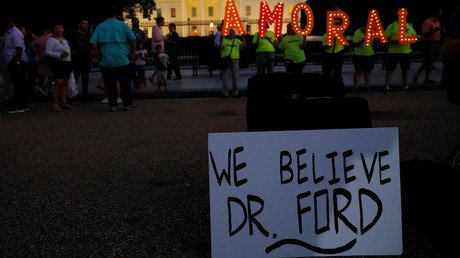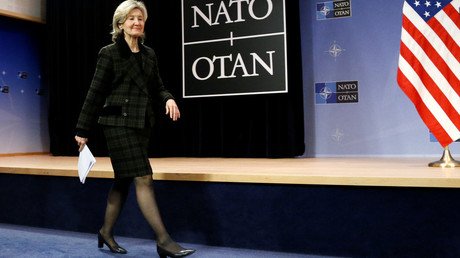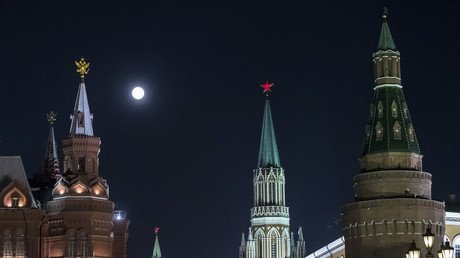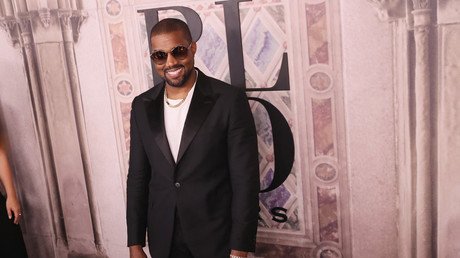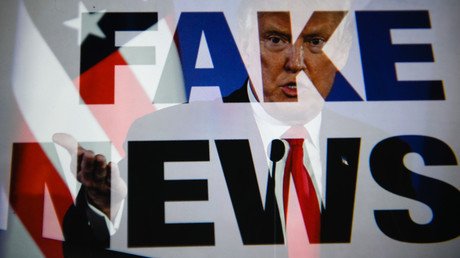More Cold War extremism and crises - by Stephen F. Cohen
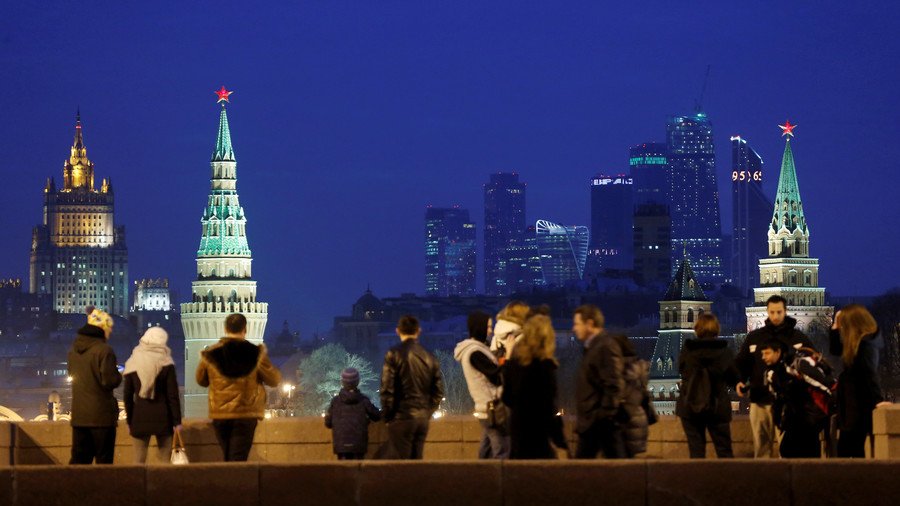
Overshadowed by the Kavanaugh confirmation hearings, US-Russian relations grow ever more perilous.
Emphasizing growing Cold War extremism in Washington and war-like crises in US-Russian relations elsewhere, Cohen comments on the following examples:
Russiagate, even though none of its core allegations have been proven, is now a central part of the new Cold War, severely limiting President Trump’s ability to conduct crisis-negotiations with Moscow and further vilifying Russian President Putin for having ordered “an attack on America” during the 2016 presidential election. The New York Times and The Washington Post have been leading promoters of the Russiagate narrative even though several of its foundational elements have been seriously challenged, even discredited.
Nonetheless, both papers recently devoted thousands of words to retelling the same narrative, on September 20 and 23 respectively, along with its obvious fallacies. For example, Paul Manafort, during the crucial time he was advising then Ukrainian President Viktor Yanukovych, was not “pro-Russian” but pro-European Union. And contrary to insinuations, General Michael Flynn did nothing wrong or unprecedented in having conversations with a representative of the Kremlin on behalf of President-elect Trump. Many other presidents-elect had instructed top aides to do the same. The epic retellings of the Russiagate narrative by both papers, at extraordinary length, were riddled with similar mistakes and unproven allegations. (Nonetheless, a prominent historian, albeit one seemingly little informed both about Russiagate documents and about Kremlin leadership, characterized the widely discredited anti-Trump Steele dossier—the source of many such allegations—as “increasingly plausible.”)
Astonishingly, neither the Times nor the Post give any credence to the emphatic statement made at least one week before by Bob Woodward—normally considered the most authoritative chronicler of Washington’s political secrets—that after two years of research he had found“no evidence of collusion” between Trump and Russia.
For the Times and Post and other mainstream media outlets, Russiagate has become, it seems, a kind of cult journalism that no counter-evidence or analysis can dint and thus itself is a major contributing factor to the new and more dangerous Cold War. Still worse, what began nearly two years ago as complaints about Russian “meddling” in the US presidential campaign has become for the New Yorker and other publications an accusation that the Kremlin actually put Trump in the White House. For this reckless charge, with its inherent contempt for the good sense of American voters, there is no convincing evidence—nor any precedent in American history.
Meanwhile, current and former US officials are making nearly unprecedented threats against Moscow. NATO ambassador Kay Bailey Hutchinson threatened to “take out” any Russian missiles she thought violated a 1987 arms treaty, a step that would risk nuclear war. The Secretary of the Interior threatened a “naval blockade” of Russia. In a perhaps unprecedented, undiplomatic Russophobic outburst, UN ambassador Nikki Haley declared that “lying, cheating and rogue behavior” are a “norm of Russian culture.”
These may be outlandish statements by untutored appointed political figures, though they inescapably raise the question: who is making Russia policy in Washington—President Trump with his avowed policy of “cooperating with Russia,” or someone else?
But how to explain, other than as unbridled extremism, statements by a former US ambassador to Moscow and longtime professor of Russian politics, who appears to be the mainstream media’s leading authority on Russia? According to him, Russia today is “a rogue state,” its policies “criminal actions,” and the “world’s worst threat.” It must be countered by “preemptive sanctions that would GO into effect automatically”—indeed, “every day,” if deemed necessary. Considering the “crippling” sanctions now being prepared by a bipartisan group of US senators—their actual reason and purpose apparently unknown even to them—this would be nothing less than a declaration of war against Russia: economic war, but war nonetheless.
Several other new Cold War fronts are also fraught with hot war, but today none more than Syria. Another reminder occurred on September 17, when Syrian war planes accidentally shot down an allied Russian surveillance plane, killing all fifteen crew members. The cause, it was generally agreed, was subterfuge by Israeli warplanes in the area. The reaction in Moscow was highly indicative—potentially ominous.
At first, Putin, who had developed good relations with Israel’s political leadership, said the incident was an accident, an example of the fog of war. His own Ministry of Defense, however, loudly protested, blaming Israel. Putin quickly retreated, adopting a much more hardline position, and in the end vowed to send to Syria Russia’s highly effective S-300 surface-to-air defense system, a prize both Syria and Iran have requested in vain for years.
Clearly, Putin is not the ever “aggressive Kremlin Kremlin autocrat” so often portrayed in US mainstream media. A moderate by nature (in the Russian context), he governs by balancing powerful conflicting groups and interests. In this case, he was countered by longstanding hardliners (“hawks”) in the security establishment.
Second, if the S-300s are installed in Syria (they will be operated by Russians, not Syrians), Putin can in effect impose a “no-fly zone” over that country, which has been torn by war due, in no small part, to the presence of several major foreign powers. (Russia and Iran are there legally, the United States and Israel are not.) If so, it will be a new “red line” that Washington and Tel Aviv must decide whether or not to cross. Considering the mania in Washington, it's hard to be confident that wisdom will prevail.
All of this unfolded on approximately the third anniversary of Russia’s military intervention in Syria, in September 2015. At that time, Washington pundits denounced Putin’s “adventure” and were sure it would “fail.” Three years later, “Putin’s Kremlin” has destroyed the vicious Islamic State’s grip on large parts of Syria, all but restored President Assad’s control over most of the country, and has become the ultimate arbiter of Syria’s future. President Trump would do best by joining Moscow’s peace process, though it is unlikely Washington’s mostly Democratic Russiagate party will permit him to do so. (For perspective, recall that, in 2016, presidential candidate Hillary Clinton promised to impose a US no-fly zone over Syria to defy Russia.)
There is also this. As the US-led “liberal world order” disintegrates, not only in Syria, a new alliance is emerging between Russia, China, Iran, and possibly NATO member Turkey. It will be a real “threat” only if Washington makes it one, as it has Russia in recent years.
Finally, the US-Russian proxy war in Ukraine has recently acquired a new dimension. In addition to the civil war in Donbass, Moscow and Kiev have begun to challenge each other’s ships in the Sea of Azov, near the vital Ukrainian port city of Mariupol. Trump is being pressured to supply Kiev with naval and other weapons to wage this evolving war, yet another potential tripwire. Here too the president would do best by putting his administration’s weight behind the long-stalled Minsk peace accords. Here, too, this seemed to be his original intention, but it has proven to be yet another approach, it now seems, thwarted by Russiagate.
Stephen F. Cohen is a professor emeritus of Russian studies and politics at New York University and Princeton University and a contributing editor of The Nation.
This article was originally published by The Nation.
Think your friends would be interested? Share this story!
The statements, views and opinions expressed in this column are solely those of the author and do not necessarily represent those of RT.
